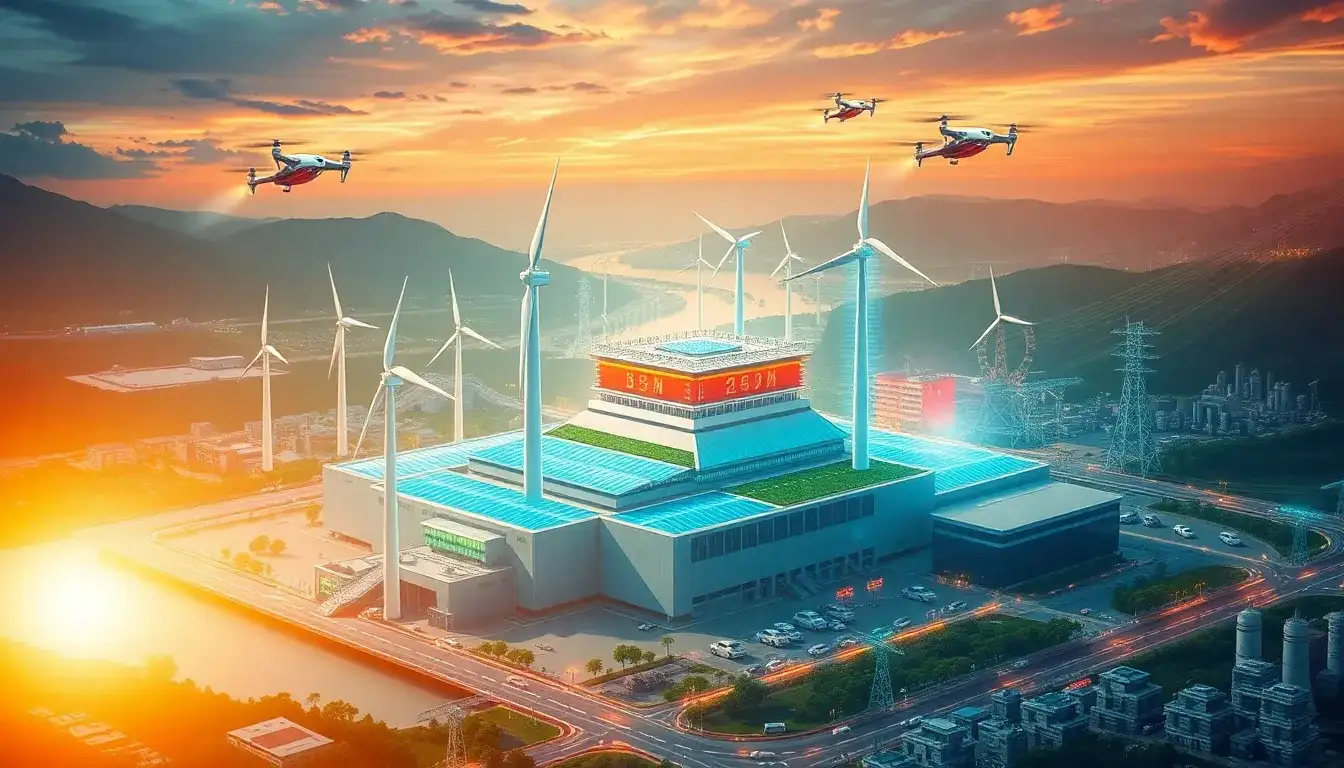
AI-powered “smart electricity” systems have ushered in a new wave of energy transformation, marking the beginning of a significant shift in the power industry. As of March 27, 2025, it is anticipated that the electricity market will not experience a steady balance. The new wave of electric power systems, evolving over the next decade, will be driven by advances in AI, a rise in energy demand, and a continued shift towards renewable energy sources.
On March 26, 2025, the China Electricity Council held a meeting in Beijing to assess the economic trends and growth forecasts for the electricity sector. According to the council’s report, 2025 will be a critical year as it marks a transition point in electricity governance, aligning with the national objective of achieving a significant reduction in carbon emissions.
Projections indicate that by 2025, the electricity market will see an increase in the implementation of new energy systems, which will require stronger regulatory frameworks and technological advancements. The need for a robust infrastructure to support high-quality renewable energy generation is emphasized, focusing on energy security and sustainability.
In terms of electricity consumption, it is predicted that by 2024, the total electricity usage will reach 9.85 trillion kilowatt-hours, reflecting a growth rate of 6.8% compared to the previous year. This growth rate is projected to surpass GDP growth by 1.8 percentage points.
In 2024, electricity consumption from the industrial sector will account for approximately 49.7% of total societal consumption, with a significant increase in usage from the first and second industry sectors. The residential sector will also see a considerable rise in electricity consumption, expected to reach 1.49 trillion kilowatt-hours, marking an increase of 10.6%.
As AI technologies continue to evolve, they are expected to play a crucial role in optimizing electricity consumption and improving efficiency in various sectors. By 2024, it is projected that AI-related electricity consumption will increase by 30.9%, with other energy service providers showing an even higher growth rate of 50.9%.
Looking ahead, the establishment of a new electric power market in China is set to commence in 2025, with initial projections indicating a supply capacity of over 38 trillion kilowatt-hours. This represents a growth rate of approximately 14%.
Moreover, the expansion of renewable energy sources is expected to significantly contribute to the overall energy mix, aiming for at least 95% of total electricity consumption to come from sustainable sources by 2030. Despite challenges in matching supply with rapidly growing demand, it is crucial for the market to adapt to these changing dynamics.
In summary, the upcoming decade is poised to witness substantial changes in the electricity market, driven by technological innovations, regulatory reforms, and a concerted effort towards sustainability. The continued evolution of AI and renewable energy technologies will be pivotal in shaping the future of energy consumption and production.







